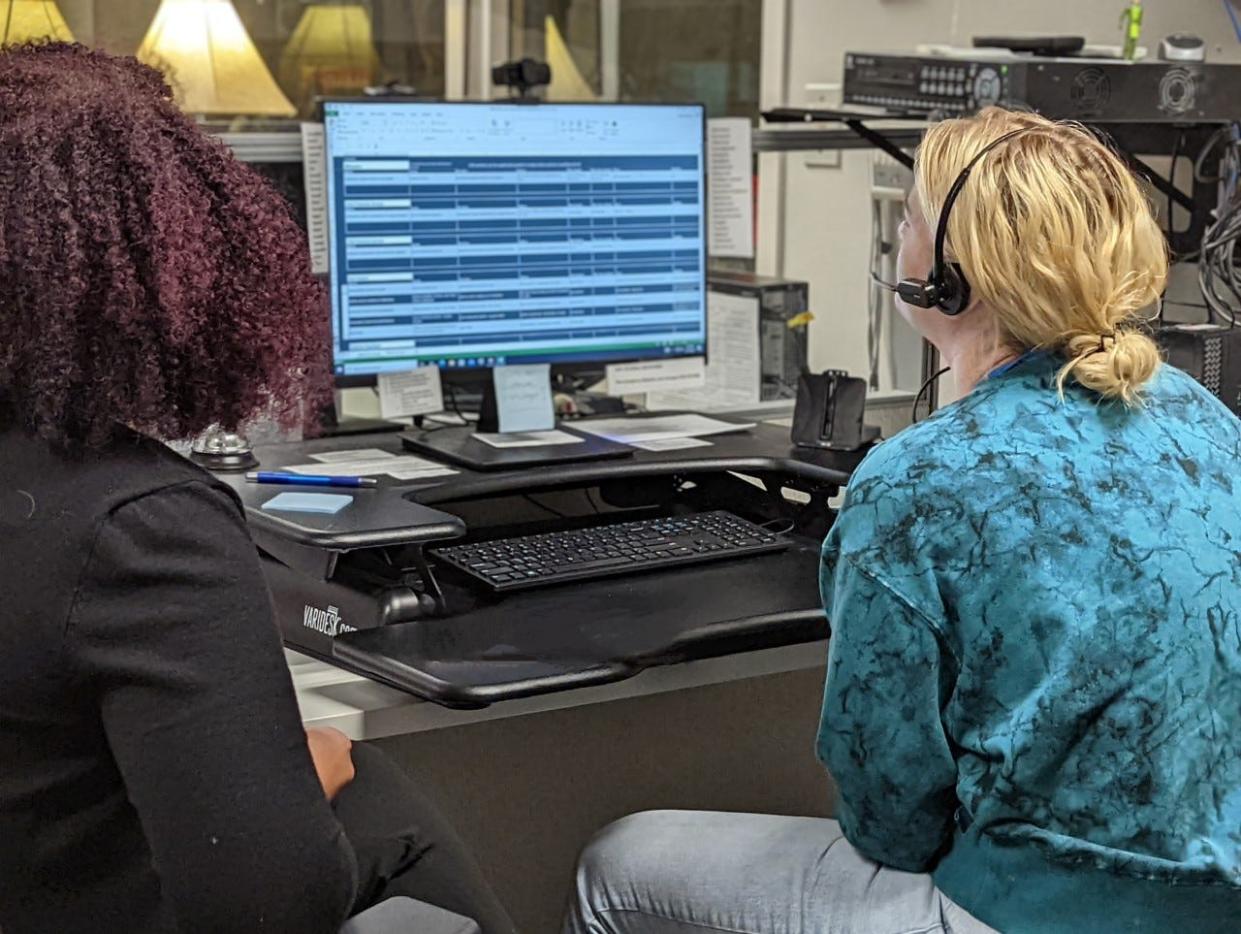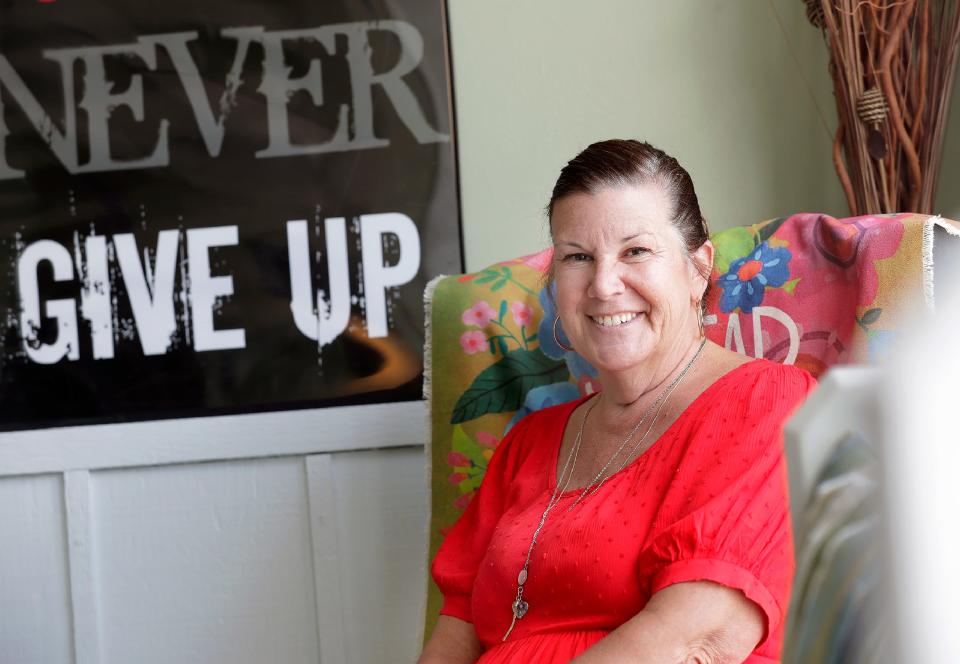Trauma emanates from mass shootings. Just ask crisis counselors, who get more calls after every one.

The day after the March 27 mass shooting at The Covenant School in Nashville, the Wisconsin branch of the national Crisis Text Line received nearly 50 texts in a single day from people spiraling over the news.
One person texted that he felt himself emotionally sink driving past a flag at half-staff on his commute. Another was considering pulling children out of school in favor of homeschooling. Yet another no longer felt anything, and worried about growing inner callousness to the volume of mass shootings.
How much more of this can we take?
That's been on Barb Bigalke's mind and the mind of other crisis counselors since the Nashville tragedy, in which three children and three adults were killed.

"We saw an increase in the textures of conversations. We saw the different types of emotions — the fear, lack of control, anger, a lot of anger that this is happening," said Bigalke, executive director at the Center for Suicide Awareness. "Those emotions are hard to process."
The Kaukauna-based organization operates HOPELINE, which can be reached at 741-741, and is part of the national Crisis Text Line network.
HOPELINE and Wisconsin Lifeline, a National Suicide Prevention Lifeline call center serving the state and reachable at 988, have become accustomed to receiving a larger influx of calls and texts in the aftermath of violent incidents. These tragic events, in addition to being traumatic for people in proximity to the violence, take up an outsize space in public consciousness.
Mass shootings, according to a recent survey from the American Psychological Association, are significant sources of stress, with one- third of adults reporting gun violence has changed where they choose to go in a given day. Some avoid malls, movie theaters and school campuses, areas that have served as gruesome stages for mass shootings across the country.
Shelly Missall, the Wisconsin Lifeline program manager at Family Services, said people called at a higher volume than usual after the Nashville shooting, even though few actually mentioned the event specifically. In previous shootings, as in the mass shooting at Robb Elementary School in Uvalde, Texas, a large volume of callers wanted to process their feelings specifically about the killing of 19 children and two teachers. Closer to home, the high volume of callers following the Waukesha Christmas Parade tragedy were especially personal. Some witnessed the attack; some knew victims and witnesses.
"We do tend to see that when those incidents hit and are in the news … there's a rise in calls. They might not be indicating it specifically, but just having it as part of their daily life adds to the stressors and the things that they're managing," Missall said.
One study found that in the hours following the Uvalde incident, people were more than twice as likely to reach out to a crisis service for support. A majority of the people who used the services, according to the study, said they were actively grieving, but not suicidal.
That aligns with Bigalke's findings, but the tenor of the grief surrounding mass gun violence rings differently for her.
"The concern is not suicidal thinking but the risk factors of suicidal thinking," Bigalke said. "When we look at things changing, where it's fear, lack of control and hopelessness — those are the three big ones we're looking at right now — those risk factors raise my eyebrows. I can't help but be concerned over what the next step will be for those people."
Counselors at both crisis lines are trained in how they respond to people in crisis. They are also taught to be mindful of themselves.
"We focus pretty heavily on self-care within our program, and making sure that our counselors are taking care of themselves so that they can be in a good space to be able to be offering the services they're offering when they're here at work," said Missall, from Wisconsin Lifeline.
Beyond just the calls after mass tragedies, the overall rate of texts and calls to Wisconsin crisis services continues to grow. In January alone, Bigalke said, HOPELINE received 1,500 texts. Compare that to the 3,500 texters who used the service in all of 2021. Similarly, Wisconsin Lifeline's call volume has quadrupled since 2021, increasing from 1,100 callers per month to 4,500 calls per month.
Thema Bryant, the president of American Psychological Association, issued a statement following the spate of mass shootings that have already happened this year. Bryant warned, "Experts say the frequency of mass shootings, amplified by our near-constant access to media coverage of such events, amounts to an accumulation of exposure that is harming everyone’s mental health."
Natalie Eilbert covers mental health issues for USA TODAY NETWORK-Wisconsin. She welcomes story tips and feedback. You can reach her at neilbert@gannett.com or view her Twitter profile at @natalie_eilbert. If you or someone you know is dealing with suicidal thoughts, call the National Suicide Prevention Lifeline at 988 or text "Hopeline" to the National Crisis Text Line at 741-741.
This article originally appeared on Green Bay Press-Gazette: Wisconsin crisis centers receive spike in volume after latest mass shooting

